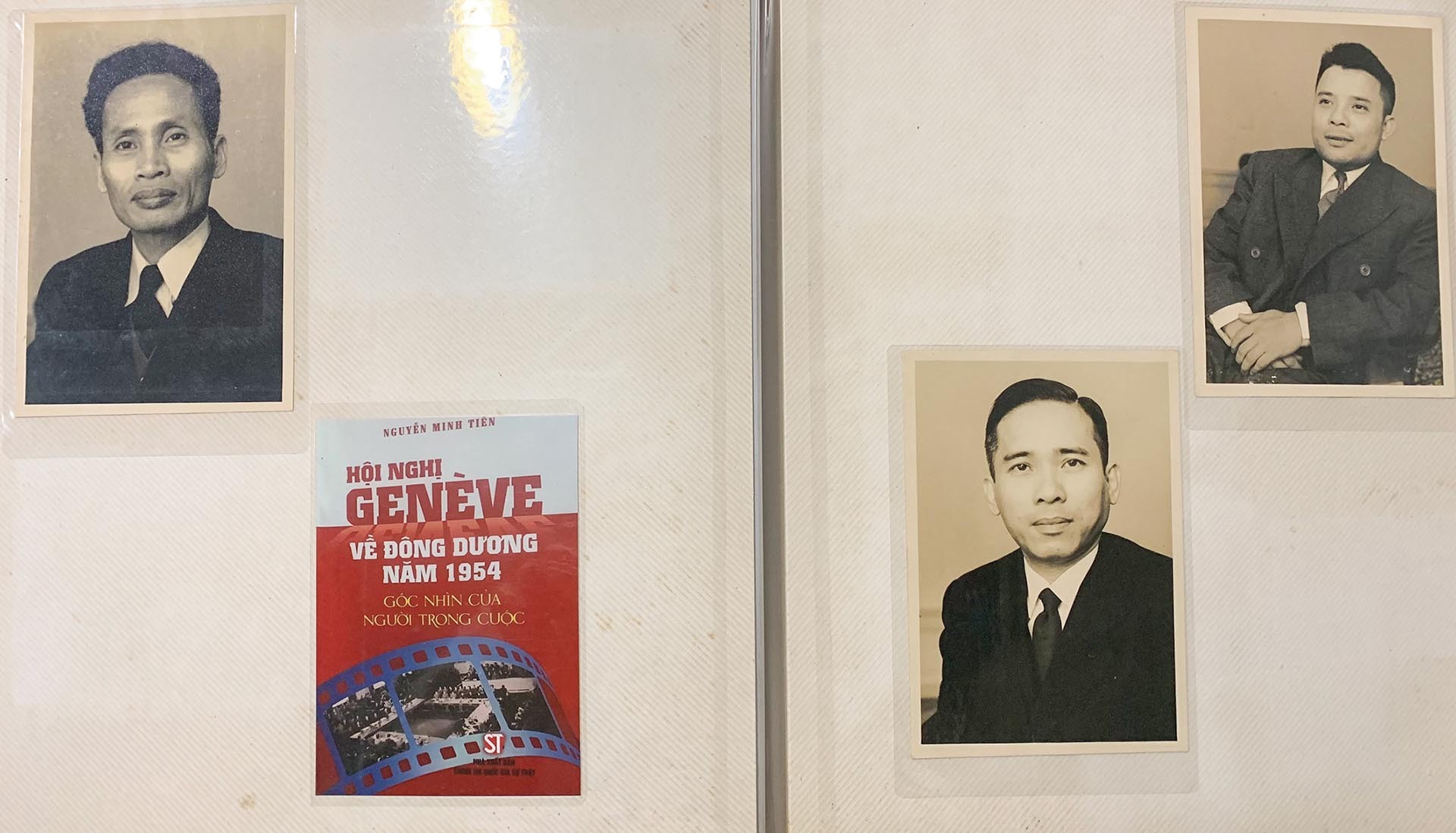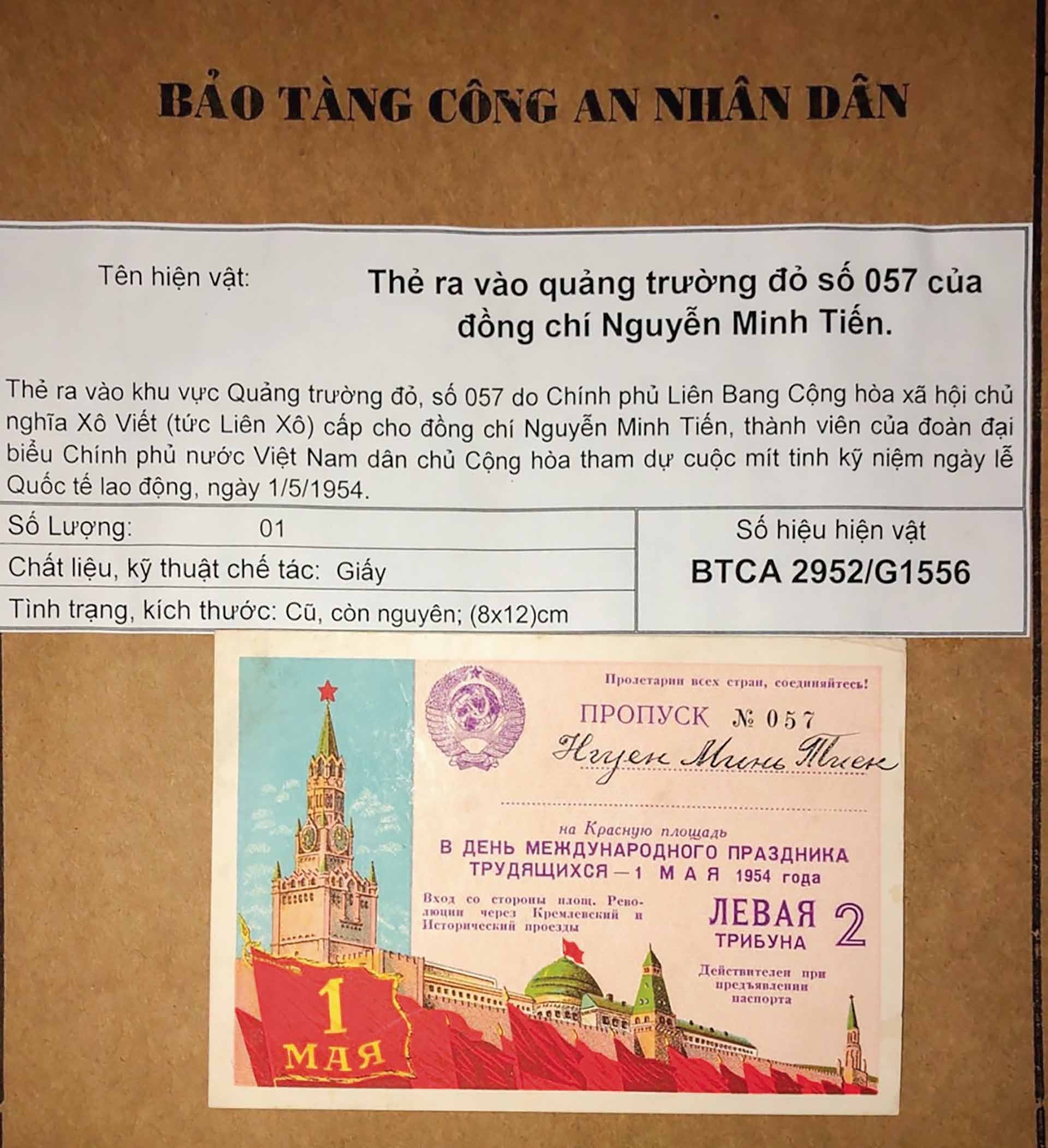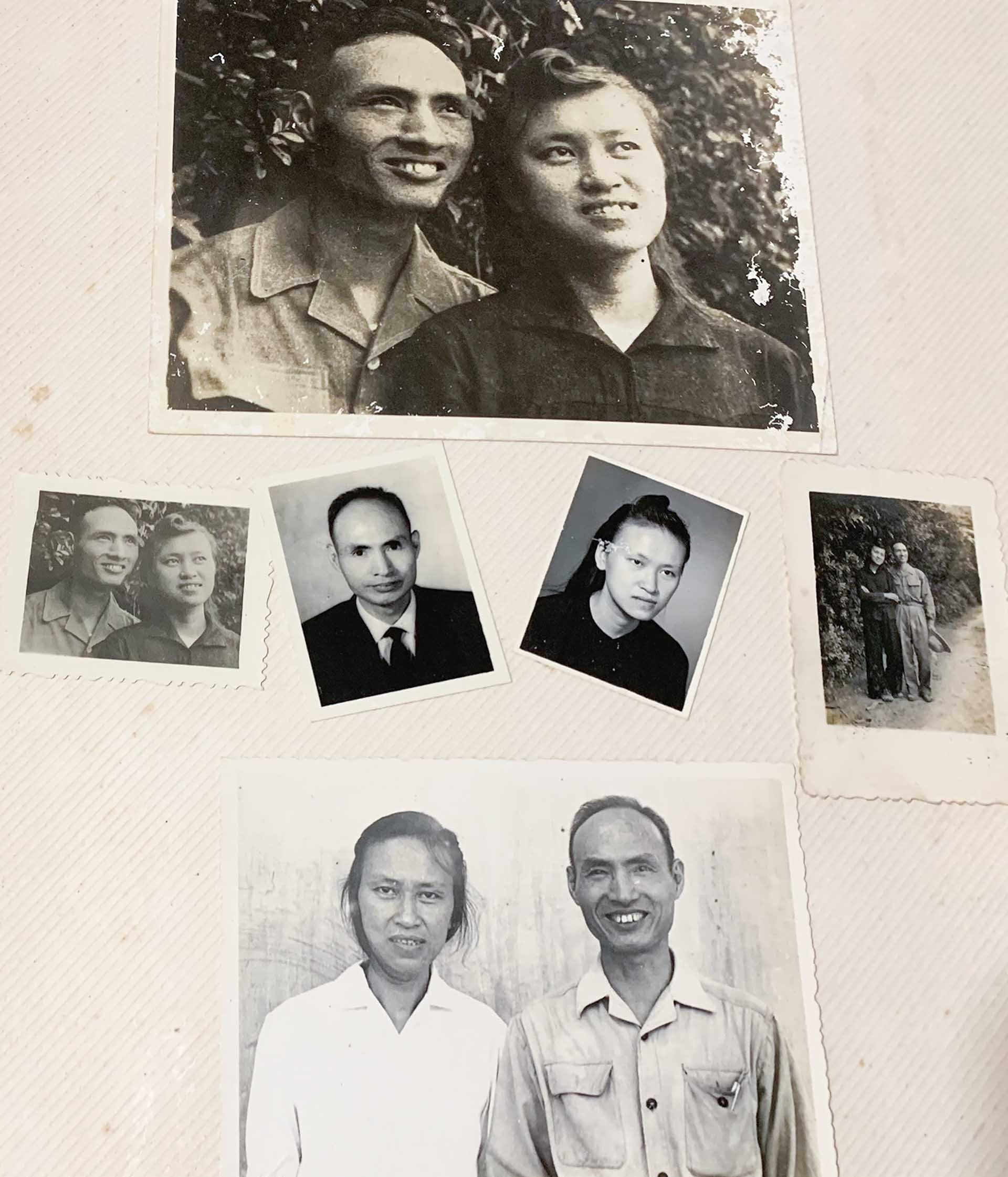
The memories in Geneva of late Deputy Minister Nguyen Minh Tien
Latest
 |
| Photos of Head of DRV Delegation Pham Van Dong and other members in the commemorative album of Mr. Nguyen Minh Tien’s family. |
We visited the family of the late Deputy Minister Nguyen Minh Tien in the early days of the spring of the Year of the Dragon – a special year, commemorating the 70th anniversary of the victory of Dien Bien Phu (7/5/1954-7/5/2024) and the 70th anniversary of the signing of the Geneva Accords (20/7/1954 - 20/7/2024).
Amidst the heroic atmosphere of those days, Mrs. Le Phuong – wife of the late Deputy Minister, along with his children, emotionally presented us with the book titled “The Geneva Conference on Indochina in 1954 - An Insider’s Perspective” published by the the Truth National Political Publishing House in 2022.
The book is a memoir meticulously handwritten by him since 1994, on the occasion of the 40th anniversary of the victory of Dien Bien Phu and the Geneva Conference. His family mentioned that, during that time, despite his old age serious illness, he tirelessly wrote and completed it by the end of 1994. His intentions were documenting the activities of the Conference and summarizing valuable lessons in the art of negotiation and diplomacy to further enrich the country’s political and diplomatic archives.
Special mission
The late Deputy Minister Nguyen Minh Tien was assigned as the security officer for our government delegation at the Geneva Conference in 1954. Following the directives of the Central Committee, Minister of Public Security Tran Quoc Hoan entrusted him and his comrade, Mr. Le Huu Qua, with a crucial task: “to ensure the safety and confidentiality of the delegation.”
Regarding ensuring safety, their superiors instructed them to: investigate and prevent all sabotage or poisoning plots of the enemy, always be vigilant and prepared for all risks, and ensure the delegation’s working and resting schedules.
On protection of confidentiality, they were tasked with protecting the secrecy of our principles and policies, countering the enemy’s attempts to steal documents and eavesdrop, being vigilant against any vulnerabilities, implementing a regime of secrecy regarding speech, movement, and transactions.
Specific security tasks were given, ranging from ensuring internal clean slate (conducting background checks, preventing infiltrators), to planning safe travel routes (researching routes, transportation, accommodation), to security at the residence (securing the accommodations, security measures for food and drinks), and ensuring protection during meetings and visits.
The protocol for maintaining secrecy was approved by the Head of Delegation Pham Van Dong in the Regulations regarding dining, transportation, work, communication, meetings, and transactions.
Given the importance of this task, before departing, Minister Tran Quoc Hoan carefully wrote in his subordinate’s notebook on March 25th saying: “Understand the task clearly, grasp the situation, apply the principles and policies skillfully, always draw from experience, and the main thing is determination to overcome difficulties, then the mission will surely be accomplished splendidly.”
 |
| Nguyen Minh Tien’s Red Square access card. |
In the early days of their mission, Mr Tien conscientiously reminded himself: “The words of Uncle Ho, the words of Brother To, the words of Brother Hoan, and my own reminder before departure day, always echoing in my ears: How to fulfill the mission completely? I have never done a task like this before, so I am always worried, but if I just be positive and determined, I will fulfill the task. The Party has gave clear instructions, so just do it that way and we will succed.”
Coming from that belief and responsibility, the late Deputy Minister Nguyen Minh Tien and other officials of the delegations strived to fulfill the task at hand. He wrote down his earlier days in Geneva: “Our security team, besides reminding other teams to follow the regulations, immediately began meticulous inspections of the delegation’s workplaces and accommodations.”
Regarding security at their accommodations and workplaces, while the Soviet Union and China had dedicated a rather large security forces operating day and night, Vietnam only had two individuals. Therefore, he proposed to his superiors to mobilize all members of the delegation to take turns guarding inside the house day and night to assist the delegation.
Writing on diplomatic skills in fulfilling their duties, he recounted: “The Soviets took care of driving. The Swiss police stationed outside the gates. To ensure they performed their duties well, we made efforts to foster goodwill with them. Occasionally, brother To would give them gifts, so they felt a fondness towards us. Seeing how well and clever we implement foreign affairs, some of the police officers here asked me (I was acting as a diplomatic officer then) which diplomatic academy we graduated from to be so proficient in diplomacy. I promptly replied: ‘We learned through practical work...”
To ensure safety during travel, the delegation typically arranged for at least two to travel together to mutually protect each other. Regarding safeguarding the confidentiality of documents and papers, they consistently reminded each other to adhere to regulations, always carrying confidential documents on their person. When it was necessary to transfer documents or letters, they always had a security escort accompanying them. Typed documents, including carbon paper, were not permitted to leave the premises.
In communications, he noted that the delegation members in the press and protocol teams consistently adhered to regulations, thereby maintaining the secrecy of our intentions. Thanks to this, no hostile infiltrated the delegation, and the espionage attack at the D’Angleterre hotel was easily dealt with.
In his memoir, he wrote: “Overall, all the teams of the delegation, from office, translation, military, security, to the press, protocol, and administration all made concerted efforts to perform their tasks well. They also showed great unity and mutual support, contributing to the delegation’s smooth and safe operation, and ultimately contributing to the success of the conference.”
 |
| Images of Deputy Minister Nguyen Minh Tien with family and friends. |
Lessons from the insider’s perspective
Not only did former Deputy Minister Nguyen Minh Tien provide detailed accounts of the security work, but in his memoir, he also captured the negotiation process at the Geneva Conference in a very authentic and vivid manner, from the historical context and developments to the outcomes of the conference. With an insider’s perspective, he distilled and presented three important lessons.
Lesson one, in all struggles, one must understand oneself, understand the enemy, understand friends, and understand the situation to set appropriate goals and measures that are in line with subjective and objective conditions. It requires shrewdness, discretion, flexibility, and organization to implement plans effectively.
Lesson two, one must derive their direction, principles, policies, and measures from the actual situation of one’s country, region, and the world to establish strategies that are consistent with objective laws.
Lesson three, In conditions where both fighting and negotiating are accepted, one must closely integrate fighting and negotiating, ensuring a smooth and clever coordination between the two. This is both a science and an art in the struggle.
When writing this memoir, former Deputy Minister Nguyen Minh Tien utilized documents provided by officials from various teams of the delegation for feedback. He made additions, corrections, and final revisions in November 1998. However, before the memoir could be published, he passed away in 1998 while still hospitalized.
Although recounting events from 70 years ago, the lessons regarding Vietnam’s geo-political position and its relations with major powers remain valuable to this day. The memoir serves as a resource for current and future generations of external affairs officials, providing them with knowledge, skills, and experiences to fulfill the tasks entrusted by the Party and the people in the new era.
| Former Deputy Minister Nguyen Minh Tien (1922-1998), born Nguyen Cong Tran in Phuc Xa, Trung Ha village, Ngoc Thuy commune, Gia Lam district, Ha Noi. When joining the resistance, he adopted the name Nguyen Minh Tien, which he used long term until retirement. During the August Revolution in 1945, he joined the National Liberation Committee of Phuc Xa and later served as Secretary of the Viet Minh in Phuc Xa area, concurrently holding the position of Chairman of the Protection Committee, and later, the Resistance - Administrative Committee of Phuc Xa Special Zone. He was also a member of the Executive Committee of the National Salvation Youth Union of Inter-Zone I of Ha Noi. In early 1947, when appointed Chairman of the Resistance Committee of District 4, Ha Noi, he consistently engaged in the revolution against the French and the American, and in the war to protect the homeland. He served as the Chief of Office of the Hanoi City Party Committee from 1950 to 1952, and later was assigned to be a security officer for the Delegation of the Democratic Republic of Vietnam at the Geneva Conference in 1954. Nguyen Minh Tien held various positions, including Deputy Chief of the Office of the Ministry of Public Security (1958-1960); Director of the Technical Reconnaissance Department, Ministry of Public Security (1967-1974); Assistant Minister, special envoy for the administration of liberated South Vietnam (1974-1976); Deputy Minister of the Ministry of Interior (now the Ministry of Public Security) from 1976 to 1991, before retiring. |













